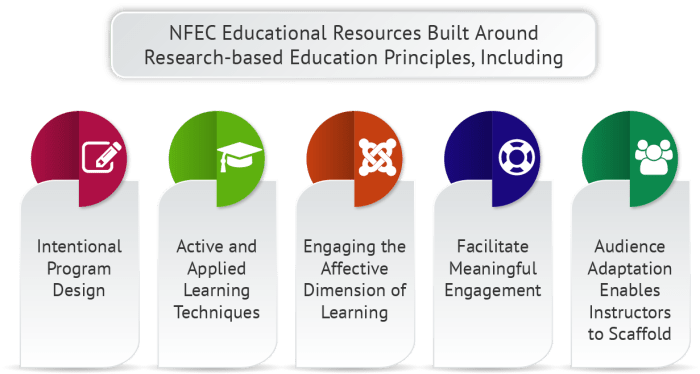Step into the world of Financial literacy resources where knowledge is power and financial freedom awaits. This overview will take you on a journey through the importance, types, best practices, and impact of financial literacy resources, providing you with the tools to navigate the complex world of personal finance with confidence.
Importance of Financial Literacy

Financial literacy is like the key to unlocking the treasure chest of personal finance knowledge. It’s all about understanding how money works, making smart financial decisions, and securing your financial future.
Impact on Personal Finances
Being financially literate can have a huge impact on your personal finances. For example, knowing how to budget effectively can help you avoid overspending and save more money for important goals like buying a car or going to college. Understanding how credit works can also prevent you from getting into debt and paying high interest rates on loans.
Benefits for Long-Term Financial Stability
When you’re financially literate, you’re better equipped to plan for the future and make informed decisions about investments, retirement savings, and insurance. This can lead to long-term financial stability, giving you peace of mind and the freedom to pursue your dreams without constantly worrying about money.
Types of Financial Literacy Resources
Financial literacy resources come in various forms to help individuals improve their understanding of money management. Let’s explore the different types of resources available and their respective pros and cons.
Online Resources
Online resources such as websites, blogs, and apps provide convenient access to financial education materials. They offer a wide range of topics, interactive tools, and real-time updates. However, the credibility of online sources may vary, so it’s essential to verify the information before implementing any advice.
Books
Books on financial literacy offer in-depth knowledge and guidance on topics like budgeting, investing, and retirement planning. They provide a structured approach to learning and are often authored by experts in the field. On the downside, books may become outdated quickly, and the information may not always be easily digestible for beginners.
Workshops
Financial literacy workshops are interactive sessions conducted by professionals to educate individuals on money management skills. They offer a hands-on learning experience, opportunities for networking, and personalized guidance. However, workshops may require a significant time commitment and sometimes come with a fee.
Courses
Financial literacy courses, whether online or in-person, provide structured learning modules on various financial topics. They often offer certifications upon completion, enhancing credibility and recognition. Courses can be comprehensive but may be costly and time-consuming.
Best Practices for Utilizing Financial Literacy Resources
When it comes to utilizing financial literacy resources effectively, there are several tips and strategies that can help you make the most out of your financial education.
Setting Financial Goals
One of the most important aspects of utilizing financial literacy resources is setting clear financial goals. Whether it’s saving for a big purchase, paying off debt, or investing for the future, having specific goals in mind can help you stay motivated and focused.
Incorporating Financial Education into Daily Routines
Try to make financial education a part of your daily routine. This could include reading financial articles, listening to podcasts, or attending workshops and seminars. By consistently engaging with financial education materials, you can continuously improve your knowledge and skills.
Tracking Your Progress
Another best practice is to track your progress regularly. Use tools like budgeting apps, spreadsheets, or financial tracking software to monitor your income, expenses, and savings. This way, you can see how you are progressing towards your financial goals and make adjustments as needed.
Impact of Financial Literacy on Different Life Stages
Financial literacy plays a crucial role in empowering individuals at various life stages to make informed decisions about their finances. Let’s explore how financial literacy can benefit individuals in different life stages and how tailored resources can meet specific demographic needs.
Students
Financial literacy resources for students can focus on budgeting, student loans, and understanding credit. Workshops, online courses, and interactive tools can help students develop money management skills early on.
Young Adults
Young adults may benefit from resources that cover topics such as investing, saving for major life events (e.g., buying a home, starting a family), and debt management. Mobile apps, podcasts, and personalized financial coaching can cater to the needs of this demographic.
Parents
For parents, financial literacy resources can include planning for their children’s education, retirement savings, and estate planning. Webinars, seminars, and family-oriented financial planning tools can assist parents in making sound financial decisions for their families.
Retirees
Retirees may require resources on managing retirement income, healthcare costs, and legacy planning. Retirement calculators, financial advisors specializing in retirement planning, and community seminars can offer valuable guidance to retirees in their financial decision-making process.
